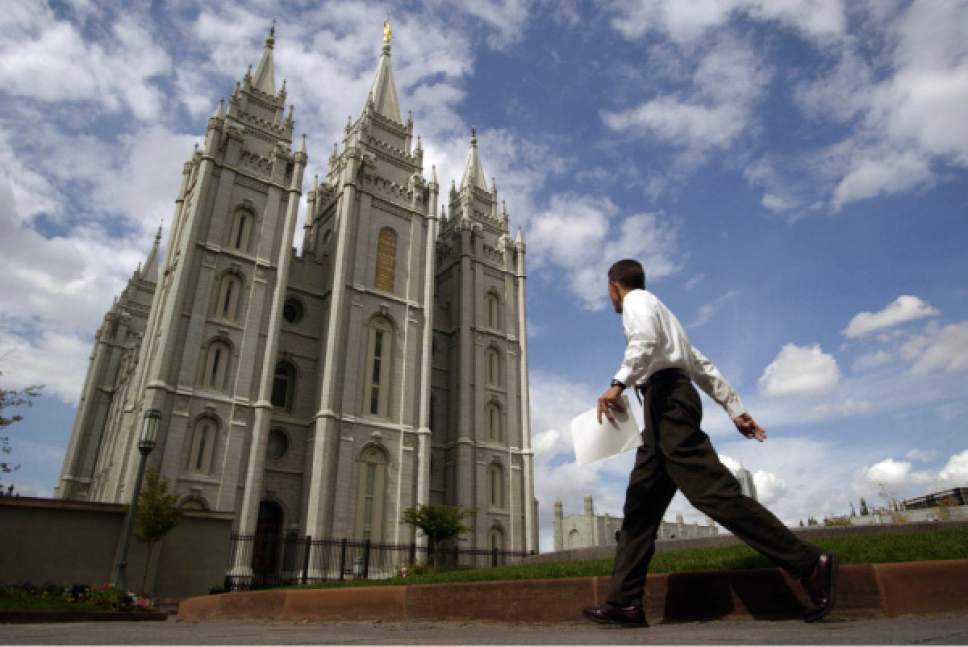This is an archived article that was published on sltrib.com in 2016, and information in the article may be outdated. It is provided only for personal research purposes and may not be reprinted.
I wouldn't be writing this column but for a conversation/heated debate I had with a fellow Mormon last week, wherein he accused this newspaper of whipping up ill feelings toward the LDS Church by pointing out a racially insensitive song called "White."
Although the reference is to becoming sin-free, Mormons have a history with comparing white to goodness and black to … well, other things.
What follows is not intended as an excuse. It's a regrettable fact. Ready?
In my life, I have said the N-word about 10,000 times. Maybe even more.
The last time I said the N-word was five minutes ago, when I asked an editor what the official policy of the newspaper was regarding the word. He said we don't ever use it in the paper.
Growing up, I used it in all sorts of manners, including addressing my black friends, as a reference to a temporary fix, and occasionally when I was trying to annoy white people who shocked easily.
I didn't use the word in front of my parents. In our house, it was a curse word that got you a whack on the head and/or a mouthful of soap. I never understood this, given that their own parents were racists.
Theirs wasn't a virulent KKK racism. It was more a simpleminded southern Idaho and Utah Mormon racism. My grandparents didn't advocate lynching black people, but they weren't shy about letting it be known that black people were their inferiors.
A large part of this stemmed from LDS doctrine/policy/custom of the time. Black people were cursed (except when it came to athletics and music) and as such yet unworthy of all of God's blessings.
This sounds completely idiotic now, but it was once tolerated and even promoted. Up until Civil Rights came to the fore, newspapers all over the country made casual and regular use of the N-word.
The fight for equality bothered my grandparents no end. When I went on a mission, I took great delight in writing to let them know that the first person I baptized in South America was black. They conspicuously didn't mention it when they wrote back.
When I got married, my dad's mother came down from Idaho for the ceremony. On the way, she listened to talk about how my fiance was having trouble getting a work visa. Grandma asked why my wife needed such a thing.
Uncle: "Because she's a foreigner, Mom. She has to have permission to work in this country."
Grandma: "A foreigner? Well, why can't Bobby marry a white girl?"
All of that was a long time ago. People get taught a lot of stupid things growing up. It's relatively easy to get over them on an individual basis as we get older and acquire more sense.
Organizations don't enjoy the same benefit. The LDS Church will spend until Kingdom Come living down our past discrimination toward black people. We earned the finger-pointing and the hypersensitivity, thanks to our past behavior.
We can prove that we're trying to get past it by being more careful when it comes to the color pallete we use for sin. I may look white on the outside, but I'm actually a deep purple on the inside.
Robert Kirby can be reached at rkirby@sltrib.com or facebook.com/stillnotpatbagley.



